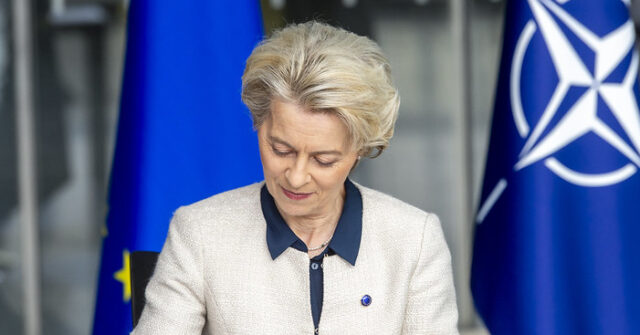European Commission President Ursula von der Leyen’s Visit to the Western Balkans
On a recent visit to Kosovo, European Commission President Ursula von der Leyen expressed strong condemnation of Russia’s hybrid warfare tactics aimed at destabilizing democracies. Highlighting the European Union’s commitment to counter misinformation, she emphasized that EU leaders are engaged in daily efforts to combat propaganda, particularly in the Western Balkans, a region that faces unique challenges in terms of political stability and economic development. Her statements reflected the EU’s dedication to supporting aspiring member states while addressing external influences that threaten democratic values.
Von der Leyen’s visit was part of a broader initiative aimed at reinforcing the EU’s enlargement policy and demonstrating its priority for the 27-nation bloc. In her remarks at a news conference in Pristina, she explicitly identified Russia’s destabilizing activities in the region, outlining the EU’s commitment to transparency and truth as a means of countering hybrid attacks. These comments underscore the necessity of a unified front against external propaganda efforts and highlighted the EU’s role as a stabilizing force in the region.
Prior to her arrival in Kosovo, von der Leyen visited Serbia, a country known for its strong ties to Russia, which has chosen not to participate in international sanctions against Moscow following its invasion of Ukraine. Notably absent from her discussions was any mention of the longstanding EU-mediated dialogue intended to resolve ongoing tensions between Serbia and Kosovo. Instead, von der Leyen turned the focus to fostering economic growth within the region, a critical step for both political normalization and EU integration.
The historical backdrop of Kosovo-Serbia relations is fraught with complexity, particularly following the 1999 NATO bombing campaign, which ended a brutal conflict that resulted in thousands of deaths, primarily among ethnic Albanians. Though Kosovo declared independence from Serbia in 2008, Belgrade has yet to recognize this declaration, resulting in long-standing tensions that continue to impede progress. However, the EU has recently proposed a growth plan worth €6 billion, aimed at revitalizing the economies of the Western Balkan countries and accelerating their accession to the bloc, conditional upon meeting certain reform criteria.
The Western Balkans—comprising Albania, Bosnia, Kosovo, Montenegro, North Macedonia, and Serbia—find themselves at different stages of the EU membership process. The general sentiment among these nations has been frustration over the slow pace of their integration, but the context of Russia’s actions in Ukraine has triggered renewed urgency among European leaders to expedite the accession process. In a pivotal development, the European Commission approved reform agendas for several countries, which is essential for facilitating financial aid linked to the proposed growth plans.
Von der Leyen’s trip concluded in Montenegro, seen as a frontrunner among the aspirant states for EU membership. She commended the country’s ongoing efforts towards EU integration, encouraging it to bridge the divides between pro-European and pro-Russian factions to secure future progress. By reiterating the European Commission’s commitment to prioritizing enlargement in the coming years, von der Leyen affirmed that all necessary tools are in place to facilitate these efforts, urging the nations of the Western Balkans to come together toward a shared future within the European Union.

